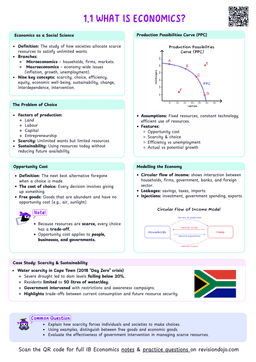Market-based supply-side policies aim to improve economic efficiency through reduced government intervention and enhanced market mechanisms.
NoteMarket-based policies focus on removing barriers to market efficiency rather than direct government intervention.
Policies to encourage competition
- Deregulation removes unnecessary government controls and bureaucratic procedures from private sector activities.
- Privatisation transfers state-owned enterprises to private ownership to improve efficiency and service quality.
- Trade liberalisation reduces international trade barriers to promote global competition.
- Anti-monopoly regulation prevents market domination and ensures competitive markets.
The deregulation of telecommunications has created more competition and lower prices in many countries.
Labour Market Policies
- Reducing trade union power allows wages to respond more flexibly to market conditions.
- Reducing unemployment benefits encourages faster return to work through stricter eligibility requirements.
- Abolishing minimum wages enables market-determined wage rates to clear labour markets efficiently.
- Students often mistakenly think that anti-monopoly regulation is just another type of restrictive business regulation.
- Actually, it promotes competition by preventing single firms from dominating markets.
The diagram below illustrates how minimum wage policies can create labour market distortions:
- Government-imposed minimum wage ($W_{min}$) sits above the market equilibrium wage ($W_e$).
- At $W_{min}$, the quantity of labor supplied ($Q_s$) exceeds quantity demanded ($Q_d$).
- This difference ($Q_s - Q_d$) represents unemployment created by the wage floor (minimum wage).
- Removing minimum wage allows the wage rate to fall to $W_e$.
- This lower wage costs encourage firms to hire more workers.


